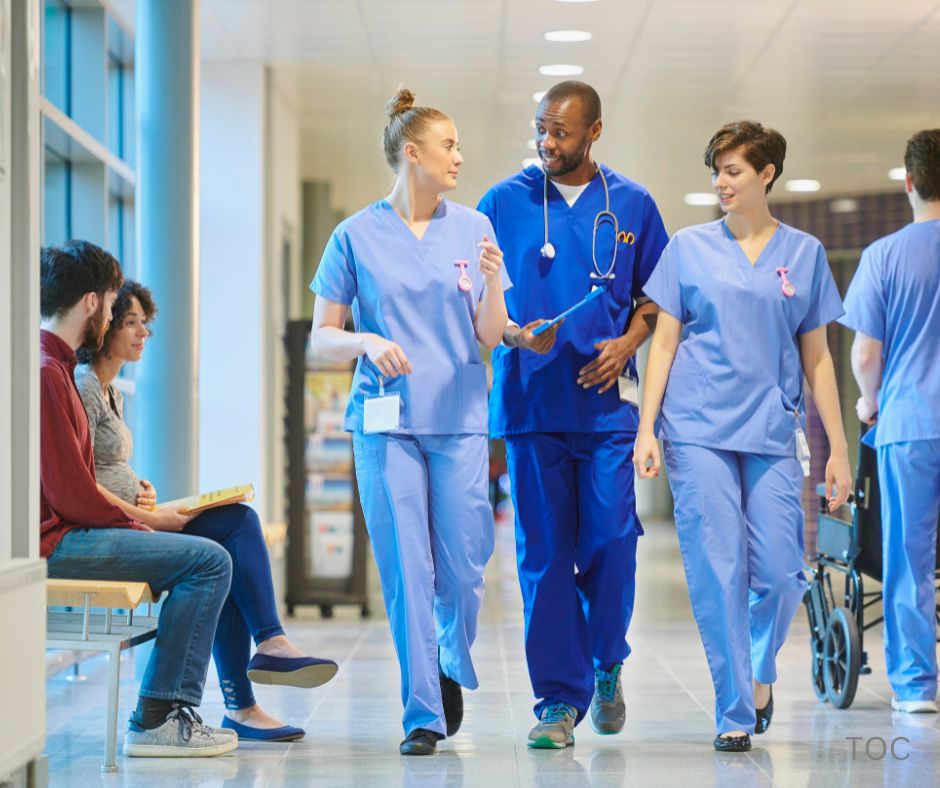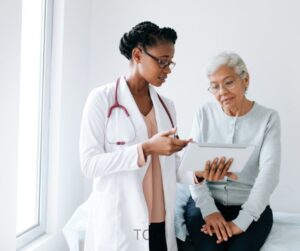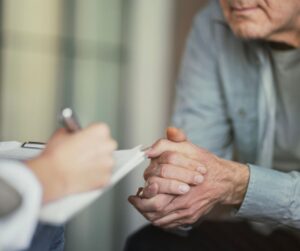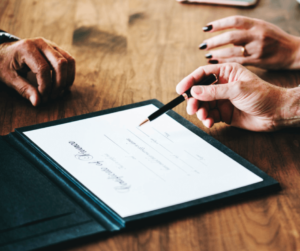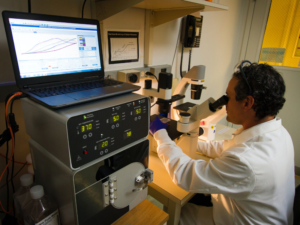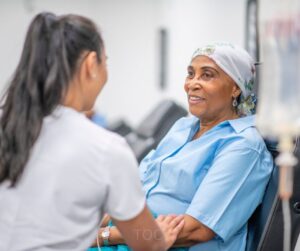Tasha Nathan – Patient
I was two weeks away from my 30th birthday when I found myself sitting in a hospital bed, watching the sunrise over Boston. What was supposed to be the day of my outpatient appointment to receive my biopsy results was now an inpatient stay for a bleed post tonsillectomy (the surgery that would determine my diagnosis). My surgeon came in around 11 a.m. and told me he was 99% sure I had a malignant tumor; he returned 30 minutes later to confirm it was 100% rhabdomyosarcoma, a rare soft tissue cancer that usually presents in children, yet I was gifted it as a 30th birthday present.
It had taken two months to receive my diagnosis, which I later learned was fast. But in those two months, I spent more effort advocating for answers than I did feeling cared for. When I learned that it was cancer, I was relieved to know my gut feeling of concern was correct but felt myself gearing up the energy to fight for my life and also to be heard by my new team.
I thought that an oncologist would come in, tell me my prognosis, give me some chemo, and send me on my way. Instead, my surgeon sat with me and let me ask silly questions, like if I had manifested my disease by always worrying I’d get cancer, or how to spell the name of my cancer. He explained statistics and prognoses to me and let me decide if it would be actually helpful to know mine. I decided not to know; I felt that knowing my odds wouldn’t change how hard I wanted to try to survive them. He came back at the end of clinic to call my parents so I wouldn’t have to tell them myself. Somehow I had felt that putting this burden on them made me a disappointment, even though it wasn’t my fault.
When I did meet my oncologist, the first thing he said to me was “You’re the captain of this ship, and I’m your co-captain. We’ll need to communicate and make decisions together, but you’ll always have a say.” He was the first person to declare that I was not only going to be heard but expected to be an active participant in my care. This set the tone for the entire course of my treatment, and the relationships I’d form with the rest of my care team.
Having only ever had a primary care physician and a dentist up to this point, I had no idea that being a cancer patient meant meeting a large team of people who would be responsible for me. This was daunting as I was immediately comfortable with my oncologist but skeptical of everyone else. I will always be grateful that he told me that he was behind every decision being made and that everyone I spoke to was in contact with him. He set my team up for success without me ever meeting them. And he was right. There was not one person on my care team who ever seemed out of the loop or unwilling to listen to me.
I thought that during treatment I would have a week where I felt off, that I’d lose my hair, and be tired but overall have a few good weeks. I created a color-coded calendar of my treatment days and sent around a sign-up sheet for friends to volunteer to drive me to appointments. Reality hit me like a 10-car pile-up. For the first five months it felt like every two weeks a new challenge or plan emerged. First it was the neutropenic fevers. Then we had to expedite radiation because of how fast my tumor grew. Then it was thrush and mucositis, then a feeding tube, and the need for IV antibiotics after almost every chemo round until we just started doing oral antibiotics proactively. Hospitalizations, more fevers, foot drop, malnourishment. The cute schedule I made was immediately thrown away as I was unable to train my friends quickly enough on my ever-changing scenario and only trusted my caretakers to be in charge. Eventually two episodes of Clostridioides difficile infection would complete the challenges I faced before finishing treatment.
Aside from the physical challenges of treatment, there were specific challenges of being a 30-year-old with cancer. I was in a relationship, but I wasn’t married or even on the path to remaining together. I quickly learned that relationship challenges don’t disappear with the onset of a cancer diagnosis. In fact, they become more complicated. I watched from the screen of my phone as my friends got engaged, married, and had children while I was too unwell to celebrate with them in person. I was happy for them but painfully aware that this wasn’t my reality or possibly even my future. The question of whether I would live long enough to even have these opportunities was constantly present, paired with the chemo that rendered me infertile. I wasn’t even sure if I wanted kids, but it felt unfair the choice was made for me. My peers were getting promotions and buying houses, and I was on long-term disability, draining my savings instead of building them, to stay afloat. The independent life I had worked so hard to build crashed around me as I landed back in the care of my parents, dependent on them for my basic needs, slowly sliding from adulthood back into infancy. I was called a unicorn for the rarity of my diagnosis. I thought standing out and being different was a good thing until it was because of my cancer. I wanted to blend in with my peers, experience the same things they were experiencing. I didn’t want to be a unicorn. I just wanted to be a horse.
My world felt completely abnormal from the body I now lived in to the lifestyle, but it was my team who brought normalcy. They became the people I saw most often. From my nurse who would access my port and take my blood to my social worker to my nurse practitioner (NP) to my chemo and inpatient NPs and nurses to the schedulers and administrative assistants, they gave me a concrete place to land while living in complete turmoil. They reminded me I was a whole person and not just a cancer patient.
Since completing treatment in December 2022, I am painfully aware that I am one of the lucky ones who is here to tell my story versus one of my bereaved caretakers having to tell it for me. While grateful to be here, survivorship has its own challenges, and just like it took time to learn how to be a patient, it has taken time to learn how to be a survivor.
Almost two years out of treatment, I’ve found a place in life that feels stable, like my tumor which has shown no evidence of progressive disease. I’m back to work in a full-time job that I love, where I spend my days working at the Sarcoma Foundation of America advocating for other sarcoma patients in their own journey. I’ve put my weight back on and grown a bob-length haircut that seems to fit the new perspective I’ve gained from my cancer diagnosis. I get to socialize and enjoy my friendships and relationships again, and I’ve regained my independence. I’ve even run a 10k, after having never been a runner prior to my cancer diagnosis. If you didn’t know my history, you wouldn’t know I carry this experience in everything I do. As Suleika Jaoaud wrote in her book Between Two Kingdoms, I now live between the kingdom of the sick and the kingdom of the well. I’ve re-assimilated to a degree, but my life will never be the same. There’s a before and an after. Physically, I have scars, I need hormone replacement therapy, and I get depleted much faster than I used to. I regularly visit my team to monitor my tumor and consult with them on new challenges, some a result from the toxic treatment I endured. Mentally, I carry the survivor’s guilt paired with the grief of what my life once was and the medical trauma that is triggered at the smell of alcohol wipes, the taste of jolly ranchers, or simply the way the light reflects above my bed.
The most challenging part of treatment and survivorship has been adjusting to both worlds, and the one constant in both was that my team is always there to support me. My social worker described it as a marriage. I have them for the long haul now (no divorcing me please!), which is a comfort. The people I trusted to save my life are the people who ground me and keep me hopeful that I’ll get more life to live.
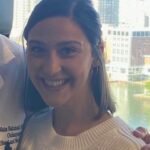
Tasha Nathan

